Background
Peter Mandler was born on January 29, 1958, in Boston, Massachusetts, United States and grew up in Southern California. He is the son of George and Jean Matter Mandler. He has a younger brother Michael.

2016
Peter Mandler at Royal Historical Society in 2016.
Magdalen College, Oxford OX1 4AU, United Kingdom
Magdalen College, Oxford where Peter Mandler received his Bachelor of Arts degree.
Harvard University, Cambridge, Massachusetts, United States
Harvard University where Peter Mandler received his Master of Arts and Doctor of Philosophy degrees.
Peter Mandler
Peter Mandler with Scott Sowerby.









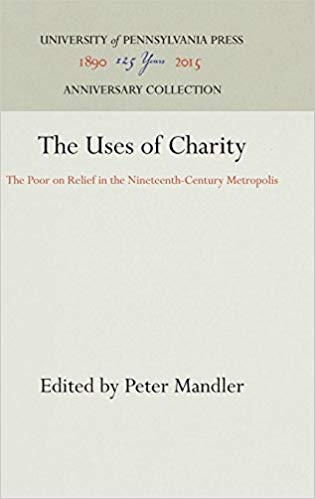
(Who were the poor of the world's first metropolises, and ...)
Who were the poor of the world's first metropolises, and how did they survive? This collection of eight original essays proposes a revisionist perspective on poverty and its relief in the nineteenth-century city, emphasizing the position of women and children and the importance of charity and welfare in their lives. The authors find that the demand for charity was constant, that the forms in which it was offered rarely matched the forms in which it was needed, that the poor used considerable ingenuity in adapting both the gifts and themselves to meet their needs, and that their attitudes toward charity often were not what either donors or historians have believed.
https://www.amazon.com/Uses-Charity-Relief-Nineteenth-Century-Metropolis/dp/0812282140/?tag=2022091-20
1990
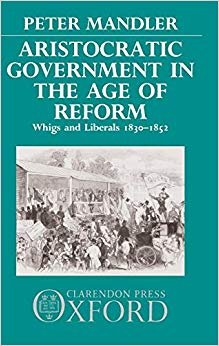
(This book challenges the view that there was a smooth and...)
This book challenges the view that there was a smooth and inevitable progression towards liberalism in early nineteenth-century England. It examines the argument of the high whigs that the landed aristocracy still had a positive contribution to make to the welfare of the people. This argument gained significance as the laissez-faire state met with serious reverses in the 1830s and 1840s when the bulk of the people proved unwilling to accept the "compromise" forged between the middle classes and other sections of the landed elite, and mass movements for political and social reform proliferated. Drawing on a rich variety of original sources, Mandler provides a vivid image of the high aristocracy at the peak of its wealth and power and offers a provocative and unique analysis of how their rejection of middle-class manners helped them to govern Britain in two troubled decades of social unrest.
https://www.amazon.com/Aristocratic-Government-Age-Reform-1830-1852/dp/0198217811/?tag=2022091-20
1990
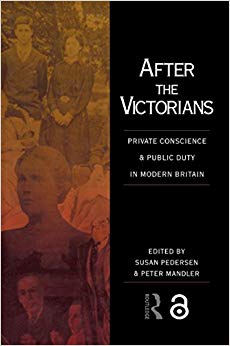
(Written by a team of eminent historians, these essays exp...)
Written by a team of eminent historians, these essays explore how ten twentieth-century intellectuals and social reformers sought to adapt such familiar Victorian values as a civilization, domesticity, conscience, and improvement to modern conditions of democracy, feminism and mass culture. Covering such figures as J.M. Keynes, E.M. Forster and Lord Reith of the BBC, these interdisciplinary studies scrutinize the children of the Victorians at a time when their private assumptions and public positions were under increasing strain in a rapidly changing world.
https://www.amazon.com/After-Victorians-Private-Conscience-Britain-ebook/dp/B000OT7XWK/?tag=2022091-20
1994
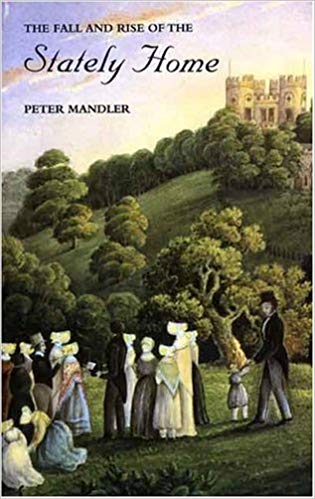
(This pathbreaking account of England`s stately homes over...)
This pathbreaking account of England`s stately homes over the past two centuries reveals much about the relationship of the nation to its past and its aristocracy. Mandler melds social, cultural, artistic, and political perspectives to show how attitudes toward the great country houses have veered from selective appreciation to outright hostility and only recently to thoroughgoing admiration.
https://www.amazon.com/Fall-Rise-Stately-Home/dp/0300067038/?tag=2022091-20
1997
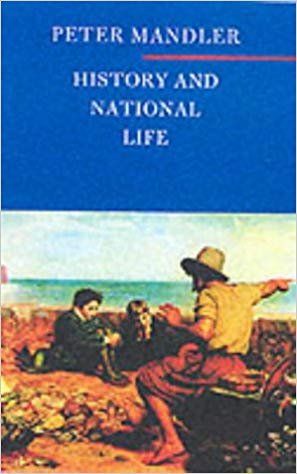
(At a time when everyone is talking about the new populari...)
At a time when everyone is talking about the new popularity of history - this book takes a longer-term view of the question, why do we care about it? Peter Mandler starts by reminding us of the nationalist origins of truly popular interest in history in the nineteenth century. In Britain, history reached out for the first time to a larger constituency by putting the 'Anglo-Saxon' people at the center of their own national history. This legacy casts a long shadow. In practice, people have been drawn to history for many other reasons, but it is still too casually assumed that its 'point' is to tell us 'who we are' and 'where we come from'.
https://www.amazon.com/History-National-Life-Peter-Mandler/dp/1861974698/?tag=2022091-20
2002
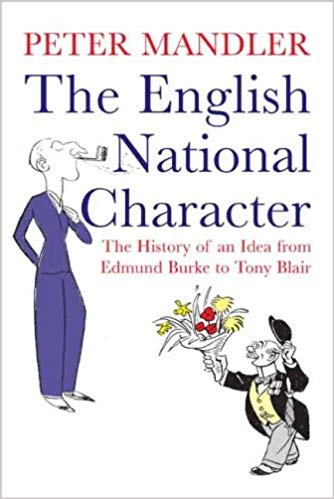
(What kind of people are “the English”? What characteristi...)
What kind of people are “the English”? What characteristic traits and behavior (if any) distinguish them from other people? This highly original and wide-ranging book traces the surprisingly varied history of ideas among the English about their own “national character” over the past two centuries. In this comprehensive and lucidly argued book, a leading historian of modern Britain challenges long-held assumptions and familiar stereotypes and proposes an entirely new perspective on what it means to think of oneself as being English.
https://www.amazon.com/English-National-Character-History-Edmund/dp/0300120524/?tag=2022091-20
2006
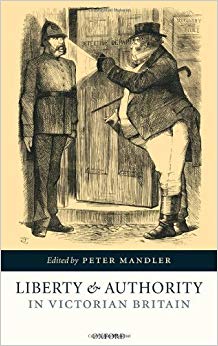
(Victorian Britain is often considered as the high point o...)
Victorian Britain is often considered as the high point of "laissez-faire," the place and the time when people were most "free" to make their own lives without the aid or interference of the State. This book, by leading historians of nineteenth-century state and society, asks to what extent that was true and, to the extent that it was, how it worked.
https://www.amazon.com/Liberty-Authority-Victorian-Britain-Mandler-ebook/dp/B001CXN07Y/?tag=2022091-20
2006
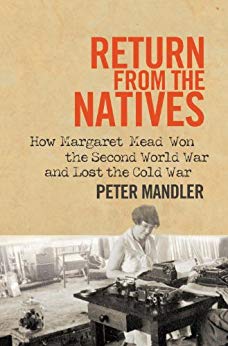
(Celebrated anthropologist Margaret Mead, who studied sex ...)
Celebrated anthropologist Margaret Mead, who studied sex in Samoa and child-rearing in New Guinea in the 1920s and '30s, was determined to show that anthropology could tackle the psychology of the most complex, modern societies in ways useful for waging the Second World War. This fascinating book follows Mead and her closest collaborators - her lover and mentor Ruth Benedict, her third husband Gregory Bateson, and her prospective fourth husband Geoffrey Gorer - through their triumphant climax, when Mead became the cultural ambassador from America to Britain in 1943, to their downfall in the Cold War.
https://www.amazon.com/Return-Natives-Peter-Mandler-ebook/dp/B00BQZ1UG6/?tag=2022091-20
2013
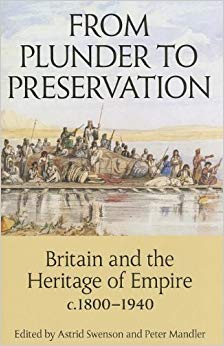
(What was the effect of the British Empire on the cultures...)
What was the effect of the British Empire on the cultures and civilizations of the peoples over whom it ruled? This book takes a novel approach to this important and controversial subject by considering the impact of empire on the idea of 'heritage'. It reveals a dazzling variety of attitudes on the part of the imperialists - from frank 'plunder' of American, Asian, African and Pacific peoples' cultural artifacts and monuments to a growing appreciation of the need for 'preservation' of the world's heritage in the places it originated.
https://www.amazon.com/Plunder-Preservation-Heritage-c-1800-1940-Proceedings/dp/0197265413/?tag=2022091-20
2013
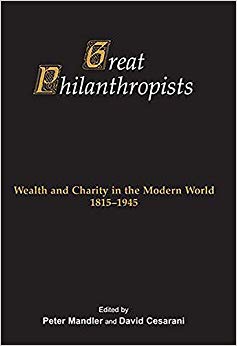
(What is a philanthropist? Why do they do what they do? Wh...)
What is a philanthropist? Why do they do what they do? What impact do they have? What makes them tick? What in their personal biographies, their communities, their backgrounds, and their moment in time drove them to devote so much time to giving so much money away? Great Philanthropists provides an over-arching view of the development, goals, and achievements of philanthropy around the world over the 'long nineteenth century,' the period in which organized philanthropy became a global movement. It examines how philanthropists make choices about which causes to support, their strategies for doing good, and the impact they have had.
https://www.amazon.com/Great-Philanthropists-Wealth-Charity-1815-1945/dp/1910383198/?tag=2022091-20
2017
Peter Mandler was born on January 29, 1958, in Boston, Massachusetts, United States and grew up in Southern California. He is the son of George and Jean Matter Mandler. He has a younger brother Michael.
Peter Mandler received a Bachelor of Arts degree with first-class honors at Magdalen College, Oxford in 1978. Then he studied at Harvard University where he received a Master of Arts degree in 1980 and a Doctor of Philosophy in 1984.
Peter Mandler began his career after receiving a doctor's degree in 1984. He became an assistant professor of history at Princeton University where he served till 1991. Then he moved to the United Kingdom and joined London Guildhall University where he held the position of a senior lecturer till 1995. The next two years he spent as a reader there. In 1997 he became a professor of history and then went to the University of Cambridge in 2001 where he is now a professor of Modern Cultural History and Bailey College Lecturer in History at Gonville and Caius College. His research interests include British history since 1800, especially cultural, intellectual and social history, the history of the humanities and social sciences in Britain and America, concepts and methods in cultural history, and educational history and policy.
Mandler’s writing career began with the book Aristocratic Government in the Age of Reform: Whigs and Liberals, 1830-1852 (1990). This book challenges the view that there was a smooth and inevitable progression towards liberalism in early nineteenth-century England. It examines the argument used by the high Whigs that the landed aristocracy still had a positive contribution to make to the welfare of the people. Drawing on a rich variety of original sources, including many country house archives, Peter Mandler paints a vivid composite picture of the high aristocracy at the peak of its wealth and power, and provides a provocative and original analysis of how their rejection of middle-class manners helped them to govern Britain in two troubled decades of social unrest.
Return from the Natives: How Margaret Mead Won the Second World War and Lost the Cold War (2013) tells the story of the national character studies through which Mead and her closest associates such as Ruth Benedict and Geoffrey Gorer sought to apply anthropological and psychological methods to international relations at a time of rapid globalization. Mandler's other key publications include Great Philanthropists: Wealth and Charity in the Modern World, 1815-1945 (2017), The English National Character: The History of an Idea from Edmund Burke to Tony Blair (2006), History and National Life (2002), The Fall and Rise of the Stately Home (1997), and others. He is currently working on a book The Crisis of the Meritocracy: Britain's Transition to Mass Education since the Second World War which will be published in 2020.
(What is a philanthropist? Why do they do what they do? Wh...)
2017(Who were the poor of the world's first metropolises, and ...)
1990(What kind of people are “the English”? What characteristi...)
2006(Written by a team of eminent historians, these essays exp...)
1994(At a time when everyone is talking about the new populari...)
2002(Celebrated anthropologist Margaret Mead, who studied sex ...)
2013(What was the effect of the British Empire on the cultures...)
2013(Victorian Britain is often considered as the high point o...)
2006(This pathbreaking account of England`s stately homes over...)
1997(This book challenges the view that there was a smooth and...)
1990
Quotations:
"The policymakers find it easier to make policy than to find the funds to back it up."
"There is intrinsic value in keeping the springs of knowledge 'clear and untainted' but there is greater value in ensuring that the supply reaches the consumer in something resembling its original state."
Peter Mandler is a fellow of the Royal Historical Society, where he has also been the president and an honorary secretary. He was chair of Editorial Boards at Historical Journal. In 2015 he became a fellow of the American Academy of Arts and Sciences and a fellow of the British Academy. From 2018 he is Chair of the Modern History section of the British Academy.
Peter Mandler married Ruth Ehrlich on December 21, 1987. The marriage produced two children, Benjamin and Hannah.
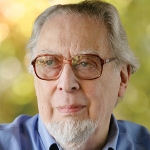
George Mandler (1924-2016) was a founding chair of the University of California San Diego’s Department of Psychology and one of the central figures in psychology’s cognitive revolution. He directed the Center for Human Information Processing from 1965 till 1990. Mandler is the author of Mind and Emotion, Mind and Body: Psychology of Emotion and Stress, Human Nature Explored, A History of Modern Experimental Psychology, and other well-regarded volumes.

Jean Mandler (born 1929) is a professor emeritus of cognitive science at the University of California, San Diego. A renowned authority on cognitive development in infancy, Mandler's specific areas of interest include concept formation in infancy and the ability of infants to recall the past. She still does some work in her field of cognitive and developmental psychology.
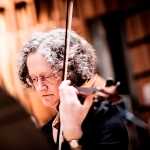
Ruth Ehrlich was for several years the first violinist in the Fairfield Quartet. Since then her wide-ranging career has included playing with the English Chamber Orchestra, the contemporary music group Apartment House and the orchestra of the Metropolitan Opera House in New York. She has a music degree from King’s College Cambridge. Ruth plays on a Nicolaus Gagliano violin of 1772.
